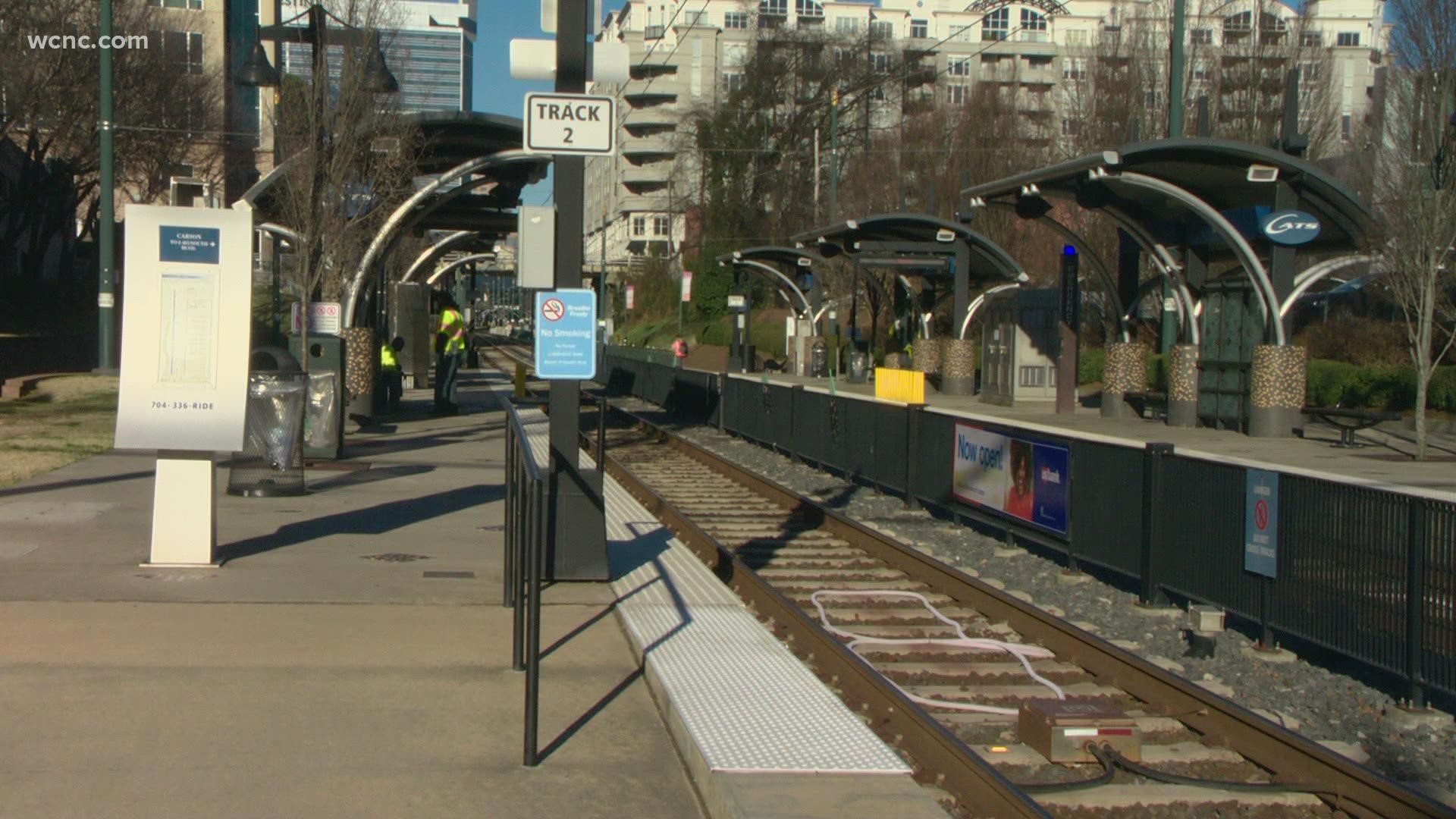CHARLOTTE, N.C. — The Transformational Mobility Network will impact thousands of Charlotteans as well as residents in surrounding counties. Charlotte and Mecklenburg County sent a delegation to Austin, Texas, Tuesday and Wednesday to see how the Texas capital got its transit plan done.
But before some leaders fly there, some residents are pumping the brakes on the big idea.
A plan worth more than $13 billion would bring more rail lines, buses and routes, streetcar extensions, sidewalks, greenways and more to the Queen City, but members of the Black Political Caucus say more needs to be done before this plan gets their full support.
ALSO ON WCNC CHARLOTTE: Here's the plan for those empty lanes in the middle of Independence Blvd.
"What we're seeking is an outcome where we all participate, we all benefit," Bobby Drakeford with the caucus said.
Charlotte has proven in the past that new rails often mean new development and gentrification, pricing out many who've called some neighborhoods home for years. South End, Optimist Park, Historic West End are just a few neighborhoods serving as examples.
The Black Political Caucus wants to see anti-displacement plans, affordable housing commitments, and minority contractor guarantees as part of the plan before voters decide if they want to support the penny sales tax increase to help fund it.
"Black and brown persons living close to the light rail should not be displaced like they're trash," Rev. Janet Garner-Mullins said.
Stephanie Sneed, Chair of the Black Political Caucus of Charlotte Mecklenburg, said Black residents are often depended on to show up to the polls and vote on transit plans and she'd like to see them helped by the plans instead of being hurt by them.
"Do Black voters get the benefits?" she asked. "Do Black residents get the benefits of these referendums and increased taxes?"
WCNC Charlotte is always asking "where's the money?" If you need help, reach out to the Defenders team by emailing money@wcnc.com.
Councilman Malcolm Graham, who is part of the delegation traveling to Austin, said these are issues that must be addressed by bringing people in, not pushing them out.
"Individuals of the Charlotte Community - specifically the African American community -- have to be a part of the change and not victims of it," Graham said.
Austin's anti-displacement funding
While in Austin, Charlotte's delegation will learn more about that city's roughly $7 billion transit plan that would bring light rail lines, rapid bus routes, and other transit operations.
Austin voters decided that $300 million of their transit plan would go towards anti-displacement efforts.
Part of the funding has already been allocated, according to city documents.
The city of Austin will purchase a large affordable housing development in order to preserve 100 to 300 units along future rail lines.
They've also pumped millions of dollars into a program that would give no-interest, forgivable and non-forgivable loans to affordable housing nonprofits. The City of Austin believes it would help the nonprofits buy vacant properties within a mile of rail lines and turn them into affordable housing.
"Texas is really comparable to North Carolina. Austin is very comparable to Charlotte," Mayor Lyles said.
"If it can work there, maybe it can work in Charlotte," Graham said.
Before voters in Charlotte can even vote on the penny sales tax increase, the general assembly will have to give its approval. Currently, that is a steep hill to travel with ongoing talks taking place between some councilmembers, staff and lobbyists.
Contact Hunter Sáenz at hsaenz@wcnc.com and follow him on Facebook, Twitter and Instagram.
ALSO ON WCNC CHARLOTTE: 'We ain't get no respect' | CATS drivers protest at Charlotte City Council meeting

